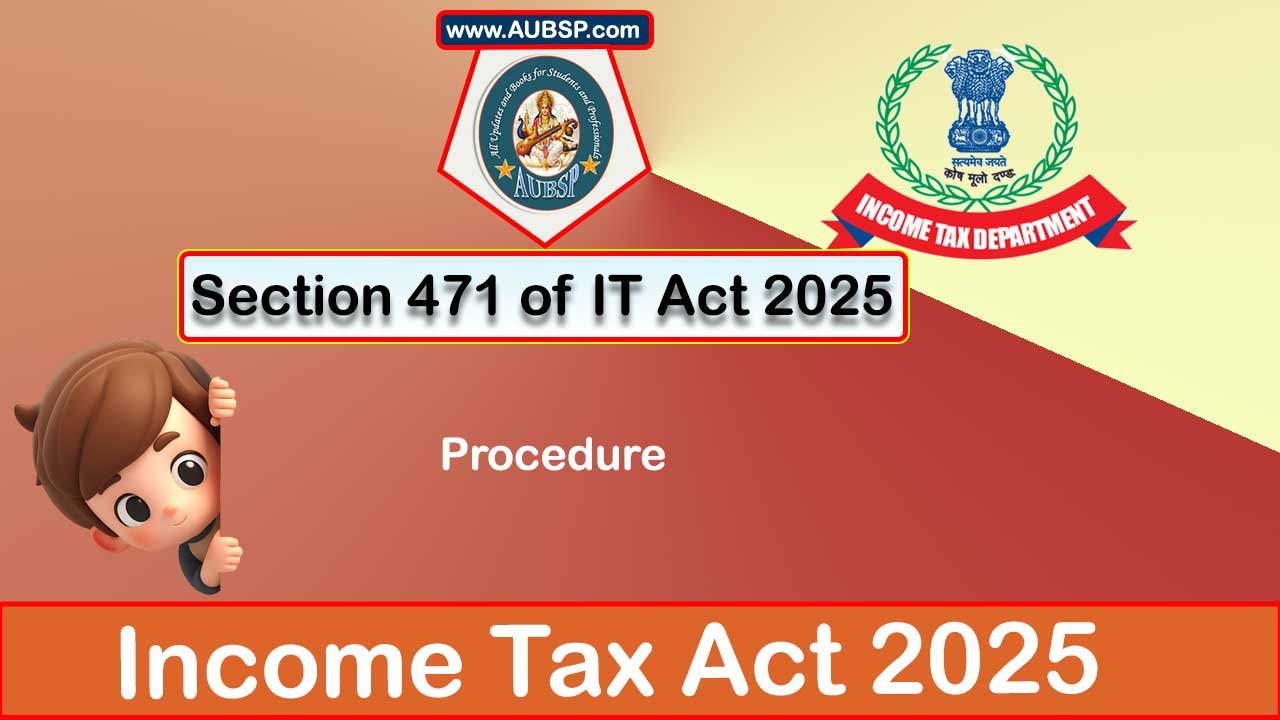Procedure
[Section-471 as per the Income Tax Act, 2025 (this Act) w.e.f. 1st April, 2026.]
Section 471(1) of Income Tax Act 2025
471(1) No order imposing a penalty under this Chapter shall be made unless the assessee has been heard, or has been given a reasonable opportunity of being heard.
Section 471(2) of Income Tax Act 2025
471(2) No order imposing a penalty under this Chapter shall be made without the prior approval of the Joint Commissioner—
- (a) where the penalty exceeds ten thousand rupees, by the Income-tax Officer;
- (b) where the penalty exceeds twenty thousand rupees, by the Assistant Commissioner or Deputy Commissioner.
Section 471(3) of Income Tax Act 2025
471(3) An income-tax authority on making an order under this Chapter imposing a penalty, unless he himself is the Assessing Officer, shall send a copy of the order to the Assessing Officer.
FAQs on Section 471 of Income Tax Act 2025
What is the primary condition before imposing any penalty under Section 471?
The assessee must be heard or given a reasonable opportunity of being heard before any penalty is imposed under this Chapter.
Is it mandatory to provide a hearing opportunity to the assessee before levying a penalty?
Yes, it is mandatory to either hear the assessee or provide a reasonable opportunity for being heard.
Can an Income-tax Officer impose any penalty amount without prior approval?
No, if the penalty exceeds ten thousand rupees, the Income-tax Officer must obtain prior approval from the Joint Commissioner.
What is the approval requirement for penalties imposed by an Assistant Commissioner or Deputy Commissioner?
If the penalty exceeds twenty thousand rupees, the Assistant Commissioner or Deputy Commissioner must obtain prior approval from the Joint Commissioner.
Is prior approval needed for every penalty imposed under this Chapter?
No, prior approval is only required if the specified threshold of penalty amount is exceeded, as per the concerned authority’s level.
Who grants the prior approval for penalty orders above the specified limits?
The Joint Commissioner is the authority who must grant prior approval for penalty orders exceeding the thresholds mentioned in Section 471(2).
What happens after a penalty order is passed by an income-tax authority who is not the Assessing Officer?
A copy of the penalty order must be sent to the Assessing Officer.
Is the Assessing Officer always the one who imposes penalties?
Not necessarily. Any income-tax authority may impose penalties, but if they are not the Assessing Officer, they must forward the penalty order to the Assessing Officer.
Does Section 471 apply to all penalties under the Income Tax Act, 2025?
Section 471 specifically governs the procedural aspects of imposing penalties under the Chapter it falls within, not the entire Act.
Can a penalty be challenged if the assessee was not given an opportunity to be heard?
Yes, failure to provide an opportunity of being heard may render the penalty order invalid due to violation of Section 471(1).

